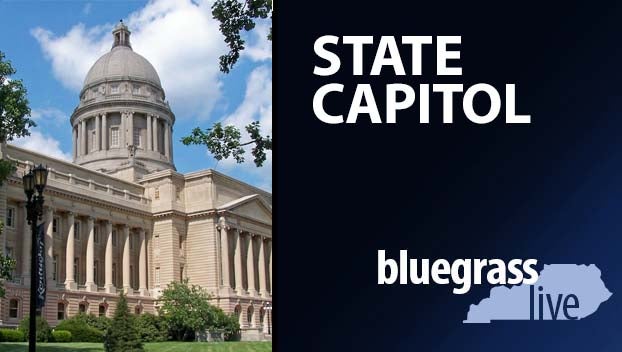‘Public dollars’ must be ‘spent on public schools’: Beshear vetoes bill aiming to create scholarship tax credits
Published 5:15 am Thursday, March 25, 2021
Gov. Andy Beshear vetoed a measure Wednesday that would allow a form of scholarship tax credits to gain a foothold in parts of Kentucky to support private school tuition, calling it an unconstitutional attack on public education.
The Democratic governor was backed by several public education leaders who lambasted the bill that narrowly passed the Republican-led legislature, saying it would drain funds that could support underfunded public schools. Advocates of the measure responded that the veto overlooks parents craving better opportunities for their children and accused opponents of using “scare tactics.”
The proposal could still become law when legislators reconvene next week. Republicans hold supermajorities in both chambers. But a successful override vote would trigger a court challenge, Beshear predicted.
“I haven’t thought through who the parties would be” in such a lawsuit, he told reporters. “But there is a constitutional provision that requires public dollars to be spent on public schools.”
Beshear said the measure also could help spark a lawsuit similar to the landmark case more than 30 years ago that led to the Kentucky Education Reform Act, which overhauled the state’s schools.
Beshear, who made support for public schools a cornerstone of his 2019 campaign, proposed an increase in the state’s main school funding formula, but lawmakers kept the per-student funding rate flat in the budget they approved.
The bill creating the form of scholarship tax credits would divert money from public school districts, especially in rural areas, Beshear said. That could cause the same types of inequities in the state’s K-12 system that led to the 1990 education overhaul law, he said.
“It’s only a matter of time, and this would probably be the instigating moment, where someone would challenge our public school funding,” he said.
The vetoed measure would create a form of scholarship tax credits — referred to by its advocates as education opportunity accounts. The accounts would be backed by private donors who would then be eligible for tax credits. The grants, managed by third-party groups, could be used for educational expenses and for public school tuition. The money also could go for private school tuition in several of the state’s most populated counties.
Opponents warn the tax credits would cost the state treasury up to $25 million a year — money that could go for public education.
“If it becomes law, this measure would greatly harm public education in Kentucky by taking money away from public schools and sending it to unaccountable, private organizations with little oversight,” the governor said.
Two top House Republicans, Speaker David Osborne and Majority Whip Chad McCoy, responded that the measure would not eliminate any funding for public education and accused the governor and his allies of using “scare tactics.” The lawmakers said the bill offers “unprecedented opportunity” for parents to meet their children’s schooling needs.
The “voices missing” from the veto announcement, they said, were the parents of children who are “faltering and failing under current conditions.”
Charles Leis, president of EdChoice Kentucky, said Beshear listened to educational special interests “over the voice of Kentucky parents who are begging for help.” He urged lawmakers to override the veto.
The bill’s supporters say the goal is to funnel the money to families lacking the financial means for other schooling options. Eligibility for a family to tap into the money to help pay for school expenses would be capped at 175% of the reduced-price lunch threshold. That’s roughly $84,800 for a family of four, the Courier Journal reported.
“For too long, families in Kentucky who aren’t wealthy have been left with no choice when it comes to education,” Leis said in a statement.
Kentucky Education Commissioner Jason Glass called the bill “deeply flawed” and urged lawmakers to “slow down and approach this enormously consequential issue more thoughtfully.”
The bill wraps two big proposals into one package. The other key component could make it easier for students to cross district lines to attend school.
Under the bill, school districts would have to create policies allowing students to attend schools there if they live in other districts. Nonresident students would count toward a district’s daily attendance figure — a crucial variable in calculating school funding.
The bill cleared the House on a 48-47 vote that sent it to Beshear. The looming override vote is likely to set off an intense final round of lobbying with lawmakers back in their districts.
Beshear vetoed another high-profile bill that would change retirement benefits for new teachers hired starting next year, saying it would hamper efforts to recruit educators.
The bill calls for new Kentucky teachers hired starting in 2022 to be placed into a new “hybrid” pension tier requiring them to contribute more toward their retirement benefits.
Meanwhile, the governor signed a measure offering a do-over year by letting students from all grades retake or supplement classes they took during the pandemic.
Local school boards will decide whether they’ll allow students to redo a year.






